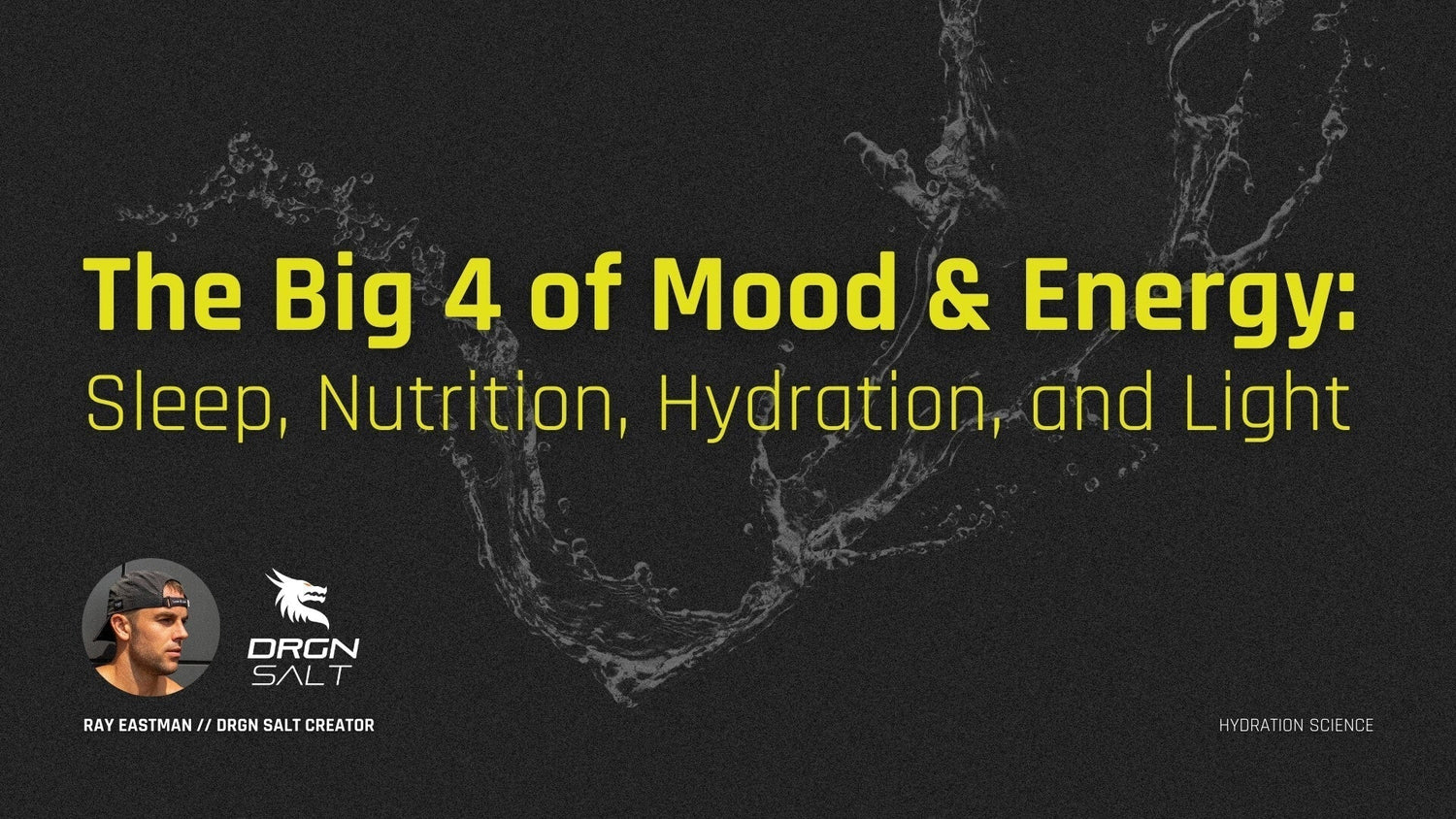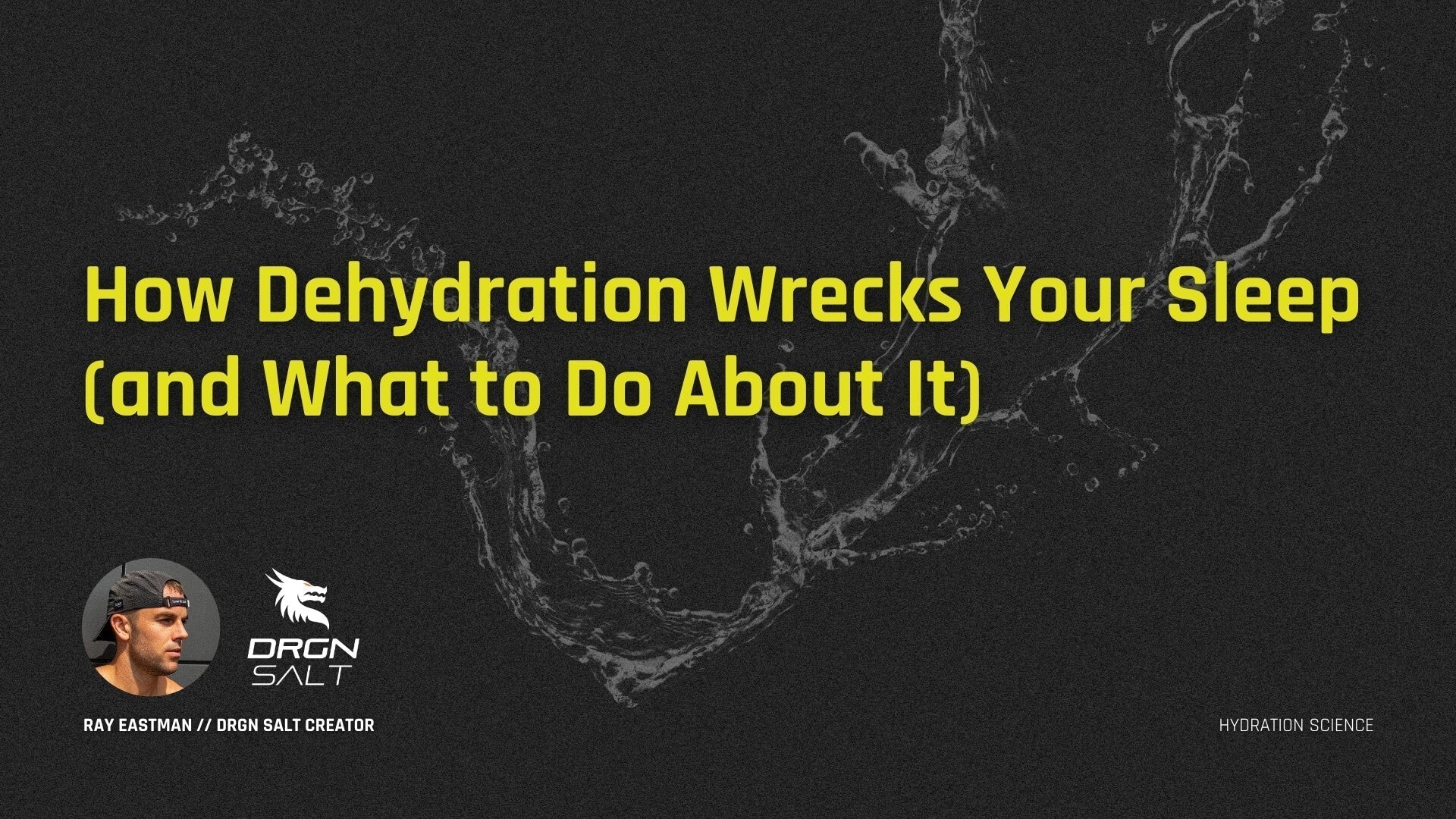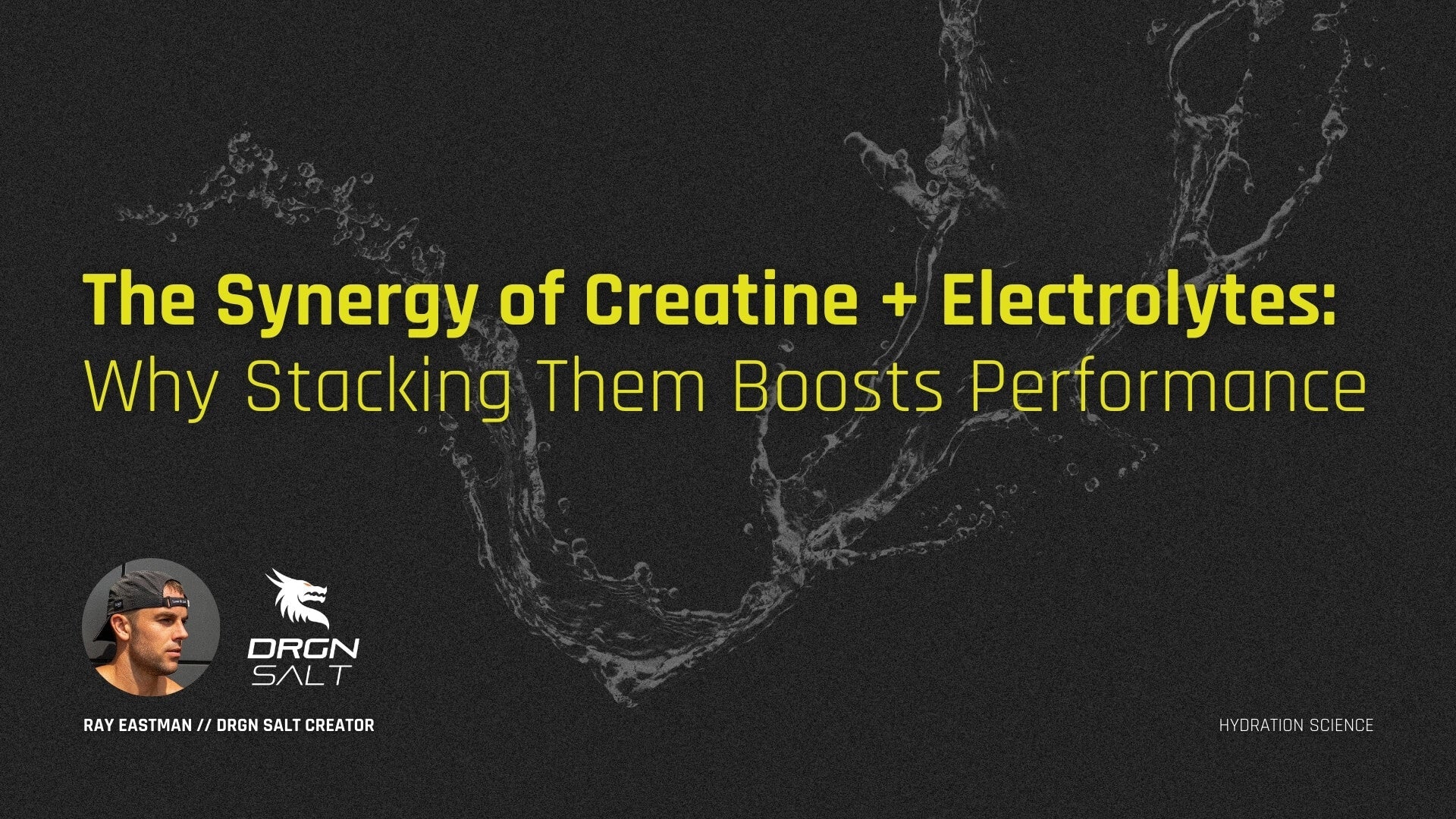Your energy and mood don’t come down to motivation or willpower alone — they’re rooted in biology. Four key lifestyle factors have an outsized impact on how you feel and perform each day: sleep, nutrition, hydration, and light.
When you dial in these four pillars, your brain and body work in harmony — making energy, focus, and resilience the default state.
1. Sleep: The Foundation of Recovery and Energy
Sleep is where your body and brain reset. Poor sleep doesn’t just make you tired — it throws off your hormones, impairs decision-making, slows recovery, and elevates stress levels.
Key sleep takeaways:
- Aim for 7–9 hours of high-quality sleep per night
- Maintain a consistent bedtime and wake time (even on weekends)
- Keep your bedroom cool, dark, and free from screens for deeper rest
When sleep is optimized, everything else (mood, focus, and endurance) improves.
2. Nutrition: Fuel for Body and Brain
Food is more than calories — it’s information for your cells. Stable energy and mood rely on balanced blood sugar, nutrient-dense whole foods, and adequate protein and micronutrients.
Nutrition tips for energy and mood:
- Prioritize protein (20–40g per meal) to stabilize blood sugar and neurotransmitter production
- Eat whole, minimally processed foods for steady energy
- Include healthy fats (omega-3s especially) to support brain health
- Use carbs strategically to fuel training and recovery
When nutrition is aligned with your activity and recovery needs, you reduce crashes, cravings, and mood swings.
3. Hydration: The Overlooked Energy Multiplier
Even mild dehydration (as little as 1–2% body weight lost in fluids) can impair cognitive function, elevate fatigue, and trigger mood dips. Electrolytes are just as important as water for hydration, since minerals like sodium and potassium regulate nerve signals and muscle contractions.
Hydration tips:
- Don’t wait until you’re thirsty, sip throughout the day
- Replace electrolytes after training or sweating heavily
- Prioritize sodium for endurance and potassium/magnesium for muscle and nervous system balance
Hydration keeps your cells energized, your brain sharp, and your mood steady.
4. Light: Nature’s Hormone Regulator
Light exposure may be the most underrated tool for mood and energy.
Morning sunlight: As neuroscientist Andrew Huberman often emphasizes, getting natural sunlight in your eyes within the first hour of waking helps anchor your circadian rhythm, boost cortisol (for alertness), and set the stage for healthy melatonin release at night.
Nighttime light: As Matt Maruca of Ra Optics highlights, blocking blue light in the evening is just as critical. Blue light from phones, TVs, and overhead LEDs can suppress melatonin (aka the sleep hormone) making it harder to fall asleep and recover deeply.
Practical light strategies:
- Get 10–15 minutes of sunlight in the morning, outdoors, without sunglasses
- Dim lights after sunset and avoid screens before bed
- Use blue-light blocking glasses if evening screen time is unavoidable
When you respect the natural light-dark cycle, your hormones, sleep, and mood all sync more effectively.
The Bottom Line
If you want better energy, focus, and resilience, don’t chase hacks — master the fundamentals.
Sleep, nutrition, hydration, and light are the Big 4 that shape how you feel and perform. When you stack them together, you build a system where energy flows naturally, mood stabilizes, and performance improves.
Your body doesn’t need complicated solutions — it needs you to give it what it’s designed for.





